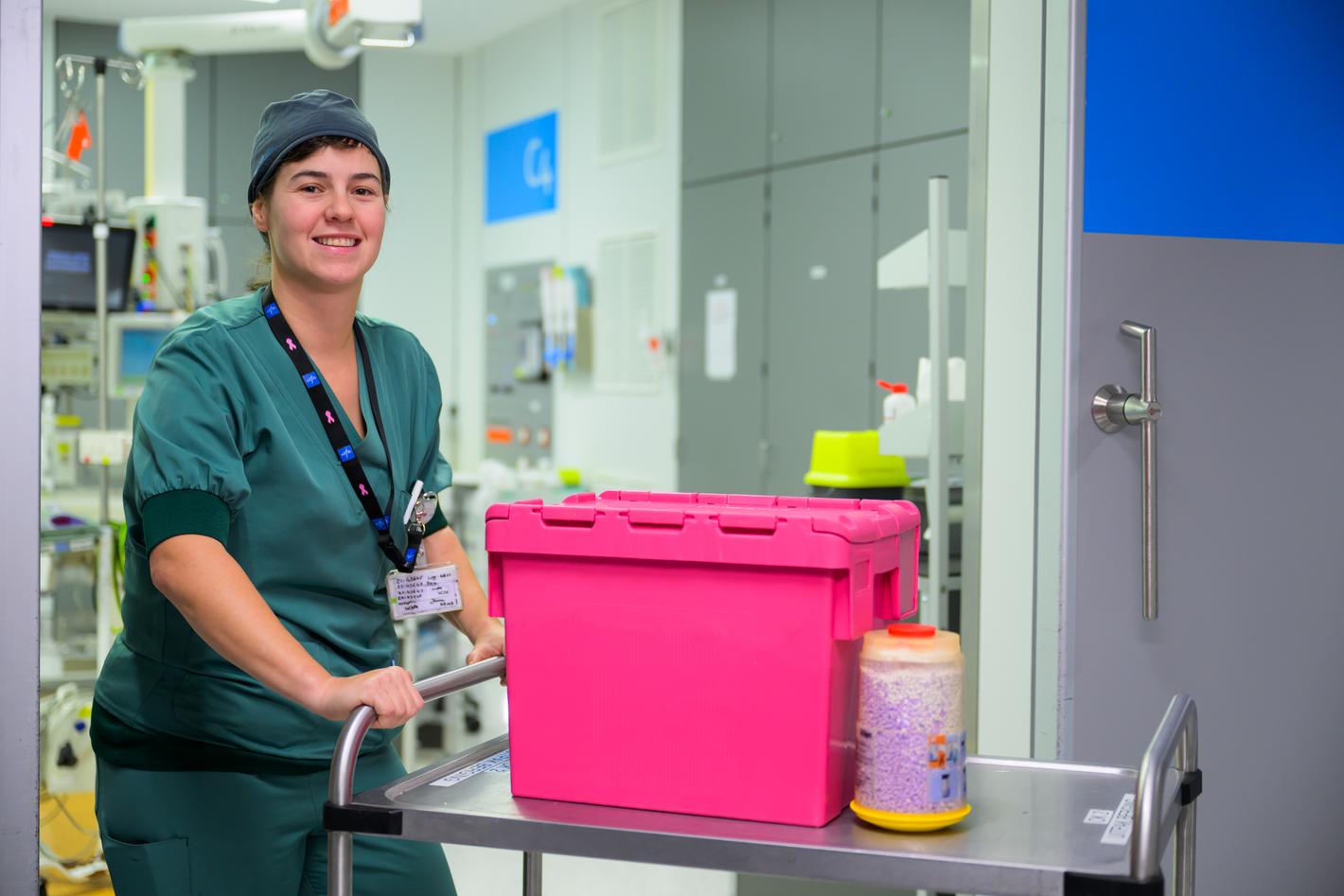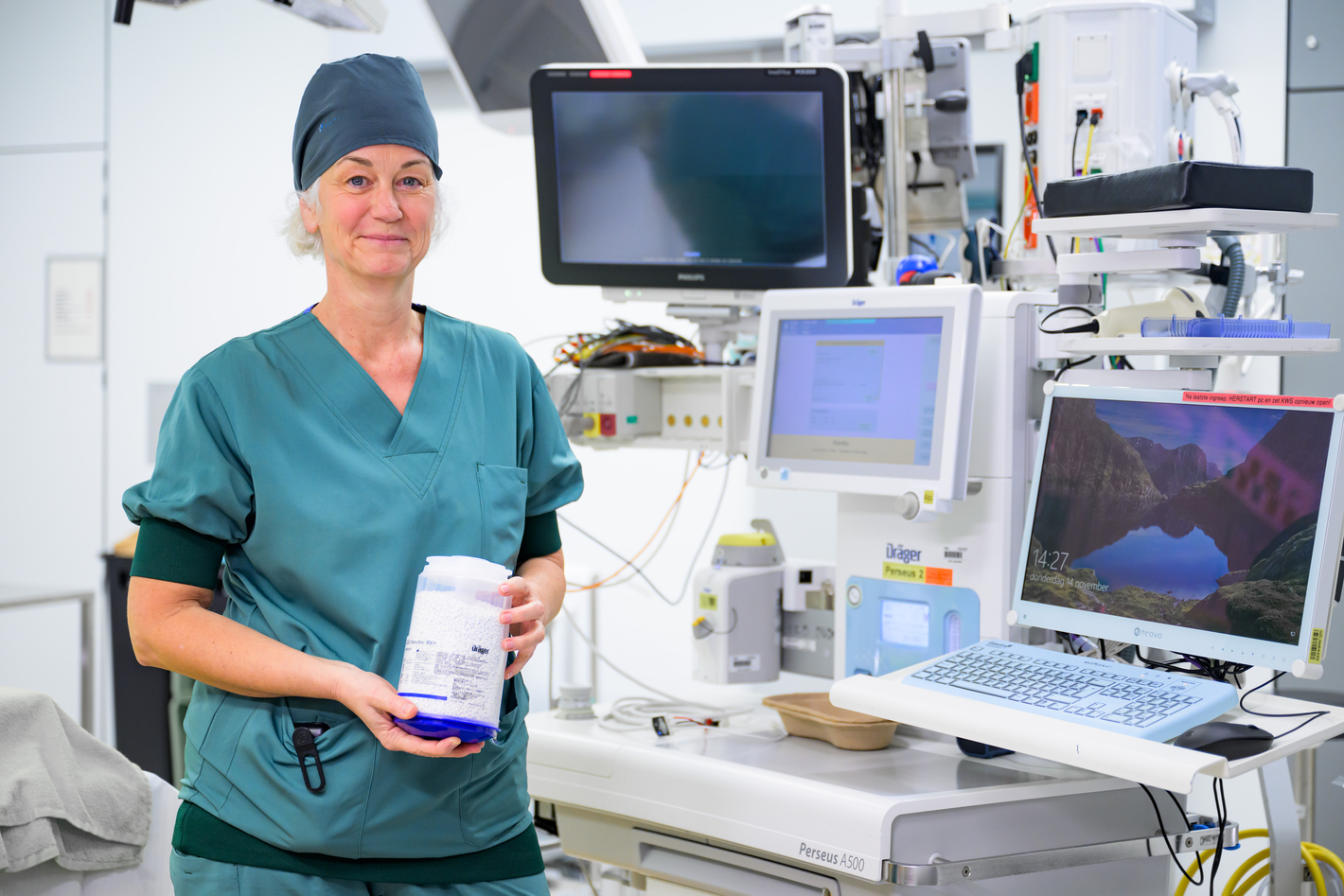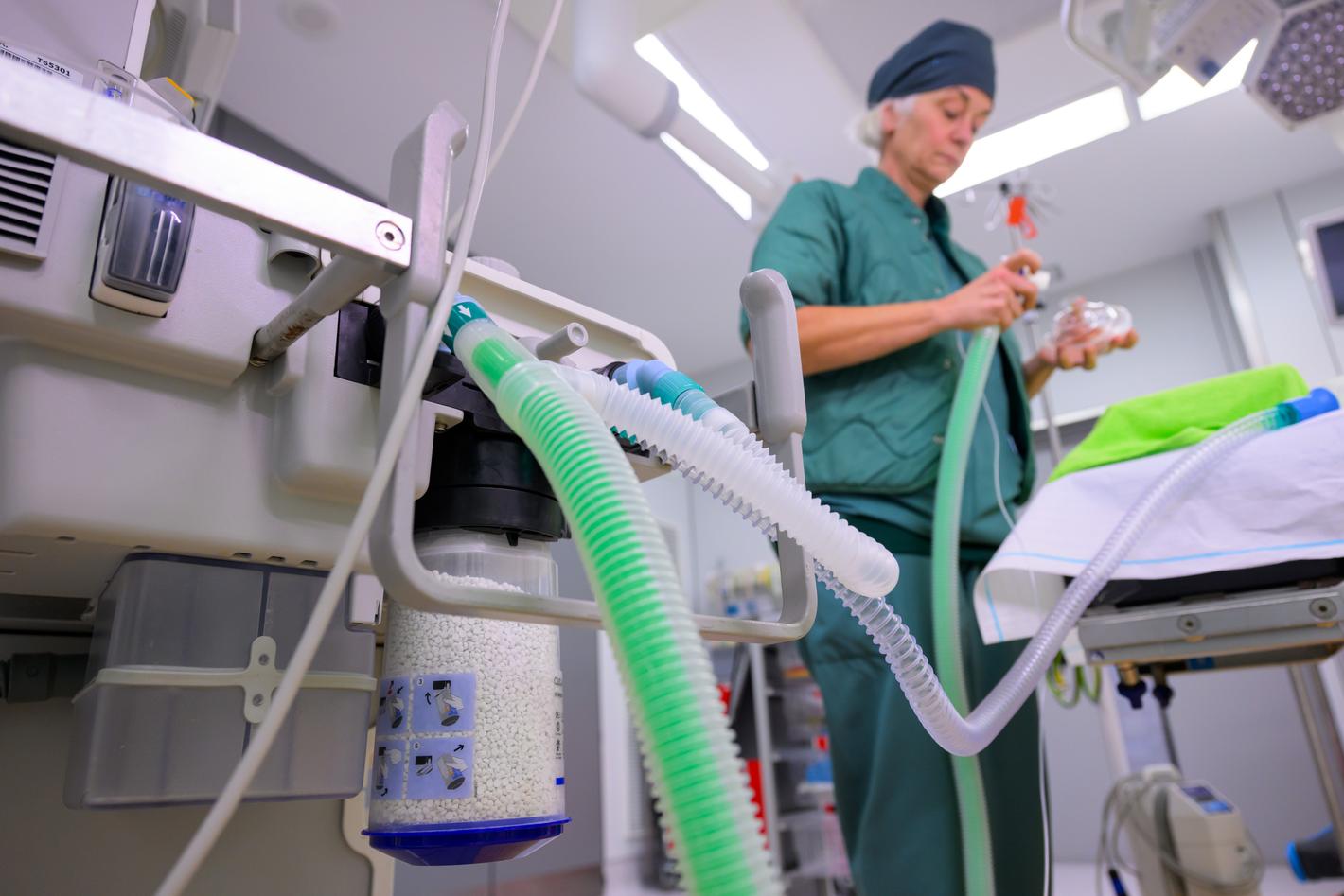CO₂ absorber canisters are essential for anaesthesiologists during ventilation during general anaesthesia. Since early November, the operating theatre of UZ Leuven has been collecting CO₂ absorber canisters for recycling. The university hospital is the first hospital in Belgium to start such sustainable recycling of medical materials. Since the 1980s, the use of disposable products in healthcare has increased sharply. From medical devices to protective or cleaning materials, the ecological impact of hospitals is considerable. In 2021, Belgium already committed to working towards a less carbon-intensive healthcare system. UZ Leuven wants to be a pioneer in this and put forward solutions that can be applied throughout the Belgian healthcare sector.

Recycling CO₂ absorber canisters has been a successful initiative. During surgery under general anaesthetic, anaesthesiologists use CO2 absorber canisters. These absorb carbon dioxide (CO₂) from patients' exhaled air, allowing the patient to continue breathing safely. Until recently, the canisters ended up in landfill after use and were burnt at the waste treatment facility. Now, UZ Leuven is having the plastic processed into pure polypropylene pellets, which can be used to make new materials in plastic. The soda lime will be reused in agriculture as a means of improving the soil.

Kristien Depraetere, sustainability coordinator at UZ Leuven: “The amount of waste in the healthcare sector increases dramatically. Not surprisingly, sustainable use of materials is one of UZ Leuven's ecological top priorities. With this recycling project were taking an important step in eco-conscious material use, with which we aim to reduce waste streams in the hospital. We're already reusing green sterilisation sheets in the operation room and we are working on solutions for the plastic trays and other materials in the hospital. Together with a number of commerical partners we are looking for new possibilities to put healthcare waste to good use.”
With this recycling project we are taking an important step in eco-conscious use of materials. Kristien Depraetere
Kristien Depraetere
Prof. dr. Steffen Rex, head of the anaesthesiology department at UZ Leuven: “On average our operating room uses 1,200 CO₂ absorber canisters a year. With this recycling project we want to show that ecological innovation is possible without without sacrificing quality or safety for our patients. Launching a circular hub is often not possible until there is sufficient material to collect. We encourage other hospitals to to also scrutinise their material use in the operating theatre.”
The recycling itself is done in collaboration with partner companies EnadviS en Dräger.
